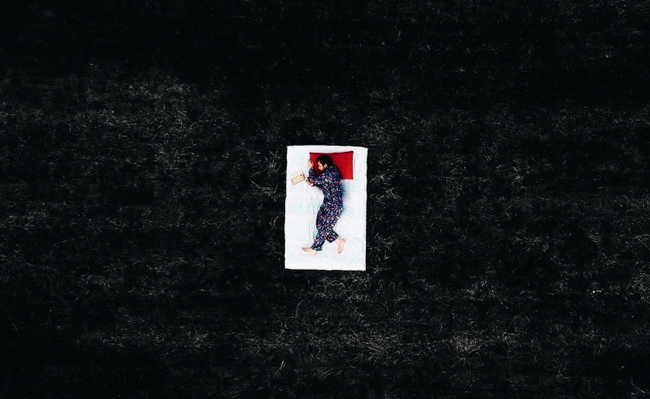What is Melatonin?
Melatonin is a hormone that promotes sleep and is related to fighting diseases such as diabetes and obesity

Resized image of Ahmet Ali Ağır, is available on Unsplash
Melatonin is a hormone produced by the pineal gland, a small structure approximately 25 millimeters in diameter that weighs 500 mg and is located near the center of the brain. Melatonin is known as the sleep hormone, but it also has several other functions, such as fighting diabetes and obesity.
In an interview to Agência FAPESP, researcher Dr. José Cippola Neto, from the University of São Paulo (USP), makes clear the importance of melatonin beyond falling asleep. The presence of the hormone in the body is essential for the production of insulin, linked to the fight against diabetes, and helps the functioning of energy metabolism, or, in other words, the way we "burn fat", which is a positive factor in fighting diabetes. obesity and the consequent hypertension.
The therapeutic replacement of the hormone by pills is possible in the US and will probably be released in Brazil by the National Health Surveillance Agency (Anvisa), since researches guarantee that unwanted effects, such as excessive sleepiness, only occur in cases of overdose. Also, it must be used after a trial clinical - an experimentation, under medical guidance, determining the correct dosage of the drug, and should always be administered close to bedtime, when the natural production of the hormone should occur, for a better adjustment of our natural clock.
Respect biological time
Following the biological clock, or circadian rhythm (learn more about this topic in the article: "What is circadian rhythm?") is essential for good health - this is nothing new. When we perceive and attend to what our body needs, the results are noticed in the short term.
Interestingly, time is never taken into account when we think about the interaction between the organism and the environment, as already pointed out in a scientific article. Despite this, science does not stop showing the relationships between the conscious use of our time, and that each moment must be lived in conditions that are adequate and relevant to our needs.
In the same article, named Environmental Control of Biological Rhythms: Effects on Development, Fertility and Metabolism and published in Journal of Neuroendocrinology, researchers do not shy away from remembering that life on Earth is conditioned to the cycles of the day, the oldest known time organizer. In our society, increasingly linked to clock time, mechanical and impersonal, and our lives " light-at-night "With great exposure to artificial lighting, we certainly extend our productive hours, but we bring along serious damage to health (learn more about this topic in the article: "Blue light: what it is, benefits, damages and how to deal with it"). people hear the "biological clock" and end up succumbing to the "chronorrupture" (chronodisrupiton), that is, a disruption in routine and in endocrine and metabolic production, linked not only to the issue of melatonin, but also to diseases such as cancer.
Dr. Cippola's research confirms this issue by associating the obesity epidemic with our sleep problems. When we get carried away by seemingly harmless habits like exposing ourselves to the light of computers and smartphones at inappropriate times, we are inhibiting melatonin production and giving up its benefits.
Taking care of melatonin production
Our bodies are no different from all life on Earth when it comes to light: we are adapted to the time of our greatest source, the Sun. Therefore, when we are exposed to artificial light, and especially to blue light (480 nanometers) , by the time our body is ready for sleep (around 20 hours active), we are inhibiting our biological clock and the production of melatonin.
One way out is the use of blue light filters on computer monitors and smartphones, which would alleviate the problem. There are also those people who have nocturnal habits, who work or go out at night. These people need to be aware of the signs of the body and rest, avoiding the light at the time of sleep, in addition to seeking a specialist when they notice changes in health.










